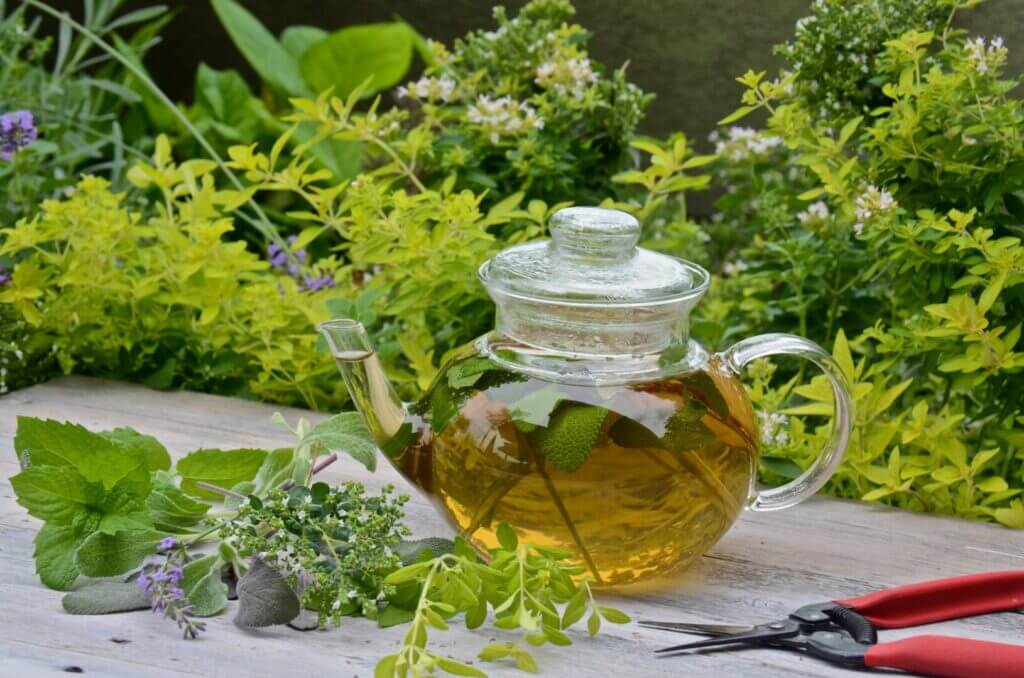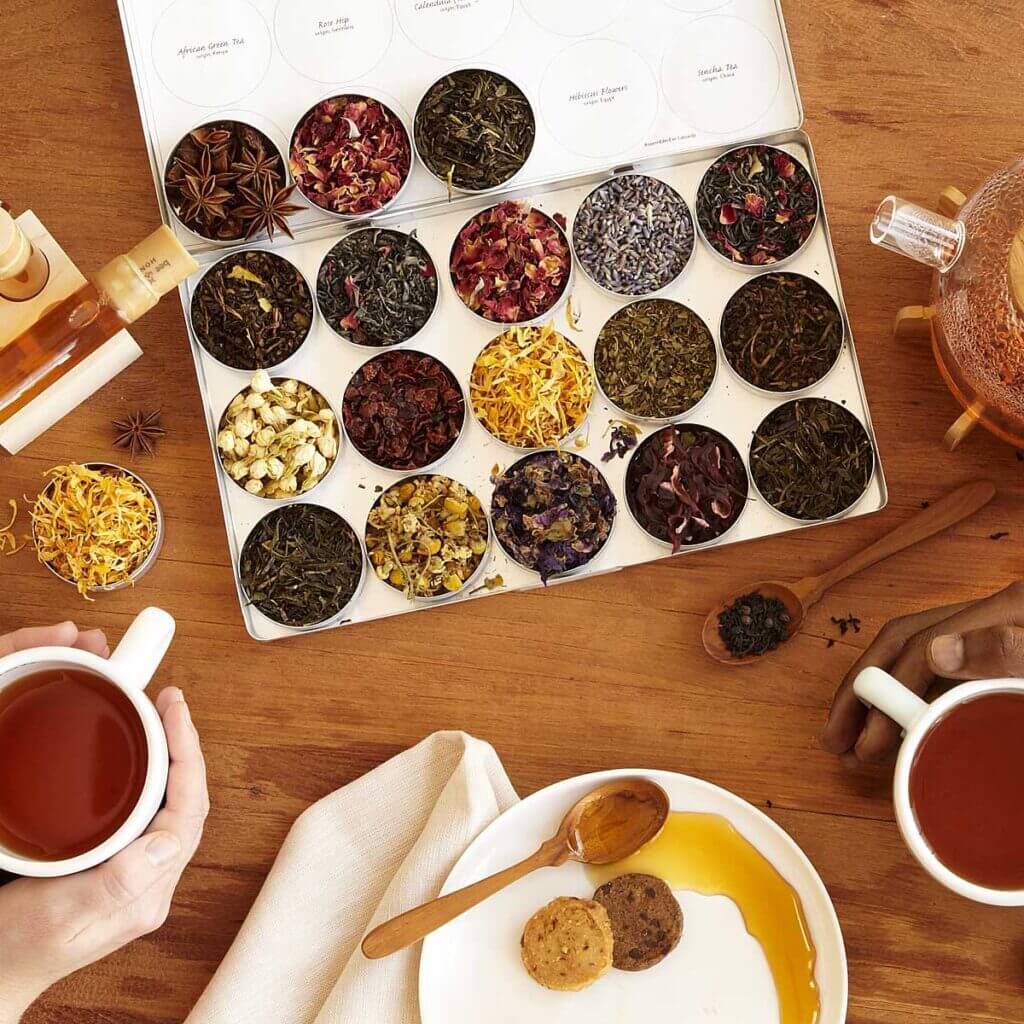When we think of tea, our minds tend to visualize dunking a tea bag of our favorite flavor into a hot, steaming cup of water or maybe a tall glass of iced tea, and for you Southerners, perhaps a frosty glass of sweet tea. While there are many people out there who love the taste of tea, there are also those of us who prefer a strong, robust cup of hot coffee or an icy cold beverage of something else. Those who think, meh, that’s just not my cup of…wait for it…..Tea! Trust me! I get it! I too lean toward the bold jolt of a good cup of coffee or three!
However, no matter which end of the flavor spectrum you prefer, how about we all look at tea in a different manner, so to speak? Now, of course, you may be saying to yourself, “What in the world is she talking about this time?” And I say, “Stay with me and I’ll tell you!”
The History and Origin of Tea

Did you know the second emperor of China, Shen Nung, is believed to have discovered tea when the leaf of a Camellia sinensis (what we now refer to as a “tea plant”) blew into his cup of hot water (2737 BCE)? The Camellia sinensis is a species of evergreen shrub or small tree in the flowering plant family Theaceae. Its leaves, leaf buds, and stems can be used to produce tea. Common names include tea plant, tea shrub, and tea tree. Also, did you know the first tea sold as a health beverage was in London, England, at Garway’s Coffee House in 1657?
Ahhh… Now you see where I’m going with this! Yes, tea is a healing botanical and, therefore, falls under the category of natural remedies. Our favorite subject!
Medicinal Benefits of Tea
Before it was a medicinal drink, the tea plant was first used as a food eaten for its medicinal effects and was most often combined with onion and garlic which are powerful by themselves.
It is rich in catechins polyphenols, powerful anti-oxidants that may reduce the risk of all cancers, and is able to inhibit the growth of cancer cells without harming healthy tissue. Tea is also known to lower total cholesterol levels by improving the ratio of good cholesterol (HDL), to bad cholesterol (LDL).
So what other health benefits can be derived from tea?
Well, the list is long but here are a few examples:
- Green tea is used for weight loss because of its thermogenic properties that promote fat oxidation.
- It effectively inhibits the abnormal formation of blood clots (thrombosis), which is the leading cause of heart attacks and stroke.
- It helps prevent strep throat and influenza when used as a mouthwash.
- The tea plant contains natural fluorine which stops cavities by destroying the cariogenic bacteria that cause plaque and oral bacteria which produce bad breath.
- The tea plant is effective in lowering blood sugar levels. High concentrations of blood sugar affect the vascular system and can lead to atherosclerosis and retinal hemorrhage.

This is fantastic news, right? The beauty is that the information above concentrates on the main botanical used in teas because, well, that’s what we know. However, there are so many other botanicals and herbs used in hot beverages for medicinal purposes and most people refer to those as teas as well and I’m about to share a few with you.
Peppermint
Although peppermint tea is most popularly used to support digestive health, it also has antioxidant, anticancer, antibacterial, and antiviral properties. Several studies have shown that peppermint oil can help relieve indigestion, nausea, stomach pain, and other symptoms of irritable bowel syndrome.
Ginger
Ginger tea packs a punch of disease-fighting antioxidants and is a well-known remedy for nausea. Studies have consistently found that ginger is effective at relieving nausea, especially in early pregnancy…it may also relieve nausea caused by cancer treatments and surgery. There has also been evidence to suggest that ginger may help prevent stomach ulcers, relieve indigestion, and reduce pain associated with menstruation. Ginger supplements could also help improve blood sugar and lipid levels in people with diabetes.
Sage
Sage tea is well-known for its medicinal properties and potential benefits for brain health. Various studies on sage have found improvements in cognitive function such as Alzheimer’s and a number of studies even found improvements in mental function and memory.
Lemon Balm
Lemon balm tea has a nice light, lemony flavor to go along with its health-promoting properties. One small study showed that drinking lemon balm tea for 6 weeks helped improve arterial stiffness, which is a risk factor for heart disease, stroke, and mental decline. Research has also found that drinking lemon balm may increase the body’s natural antioxidant enzymes. This helps protect the body from oxidative damage. And bonus! One review found that lemon balm could even improve symptoms of anxiety and depression with no serious side effects.
Keep in mind, there are quite possibly hundreds of herbs and botanicals that have strong health properties and are very beneficial to consume. The great part is, you can research and blend to create an unlimited amount of variety and flavor to suit your needs. So many different blends to put you on the mend, if you will!
Now, you may be saying, “That’s all great information but isn’t Katts Remedies a CBD company?”
Well, yes, this is true. Katts Remedies IS a CBD company. With that being said, remedies can come in all forms of naturals, and therefore as we’ve previously stated, Katt will be expanding her products to other natural remedies that will be available in the near future, including some very therapeutic tea blends.
As always, we encourage you to seek advice from your physician before taking any kind of supplement. In the meantime, stay tuned for up and coming products by Katts Remedies!

